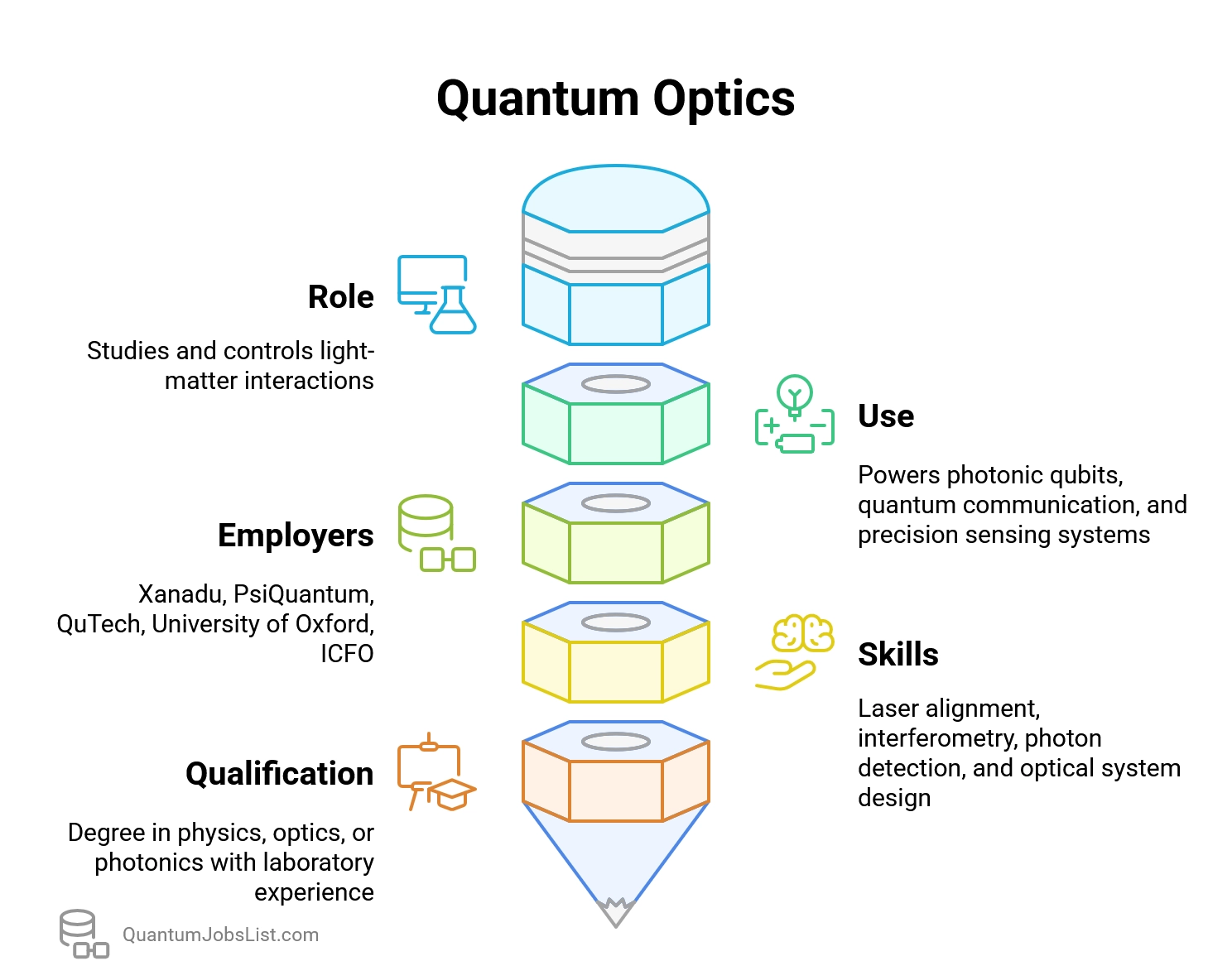Quantum Optics Jobs













































Search jobs
Know the Basics
It's the science of how light and matter interact at the quantum level, understanding & controlling single photons and atoms to build quantum computers, sensors, and communication systems.
Quantum information processed with system comprising optical photon & a single trapped atom gives a path toward a scalable quantum computer. Gerhard Rempe, Director at the Max Planck Institute of Quantum Optics
What does a quantum optics researcher do?
They install and run prototype systems, gather and assess information, document experimental outcomes, and collaborate with scientists and engineers. You will learn about the behavior of light particles, design advanced experiments using lasers and mirrors, gauge quantum attributes, and invent novel methods to manipulate light for quantum technologies.
How much do quantum optics specialists earn?
The average salary is $218481 a year in the United States. Depending on qualifications, the annual salary range is $100,000 - 150,000, while entry-level researchers start around $60,000-80,000, while experienced professionals can earn much more.
What skills do I need for quantum optics careers?
A solid understanding of physics, mathematics, and engineering, combined with knowledge of programming languages such as Python and MATLAB, and hands-on experience, is a prerequisite. Familiarity with lasers, optical systems, and quantum measurement apparatus is critical.

What's the difference between quantum optics and regular optics?
Regular optics studies light as waves or rays, like how glasses or cameras work. Quantum optics, on the other hand, considers light as photons and examines their bizarre behavior on the quantum level. It is the difference between observing a crowd and tracking each person.
This is going to open a new frontier of quantum optics & allow a new class of experiments in quantum computing using photons. Thomas Jennewein, Physicist
What real-world applications use quantum optics?
Applications include timekeeping with optical atomic clocks, quantum sensing, and quantum holographic imaging. It also includes secure quantum communication, building photonic quantum computers, and ultra-sensitive medical imaging devices that can detect single molecules.
Do I need a PhD for quantum optics jobs?
Many research positions prefer PhDs, especially at universities and national labs; However, master's degree holders can find jobs in experimental labs. Bachelor's degree holders can work as lab technicians or research assistants. Your hands-on experience with optical systems matters as much as your degree level.

.svg)

